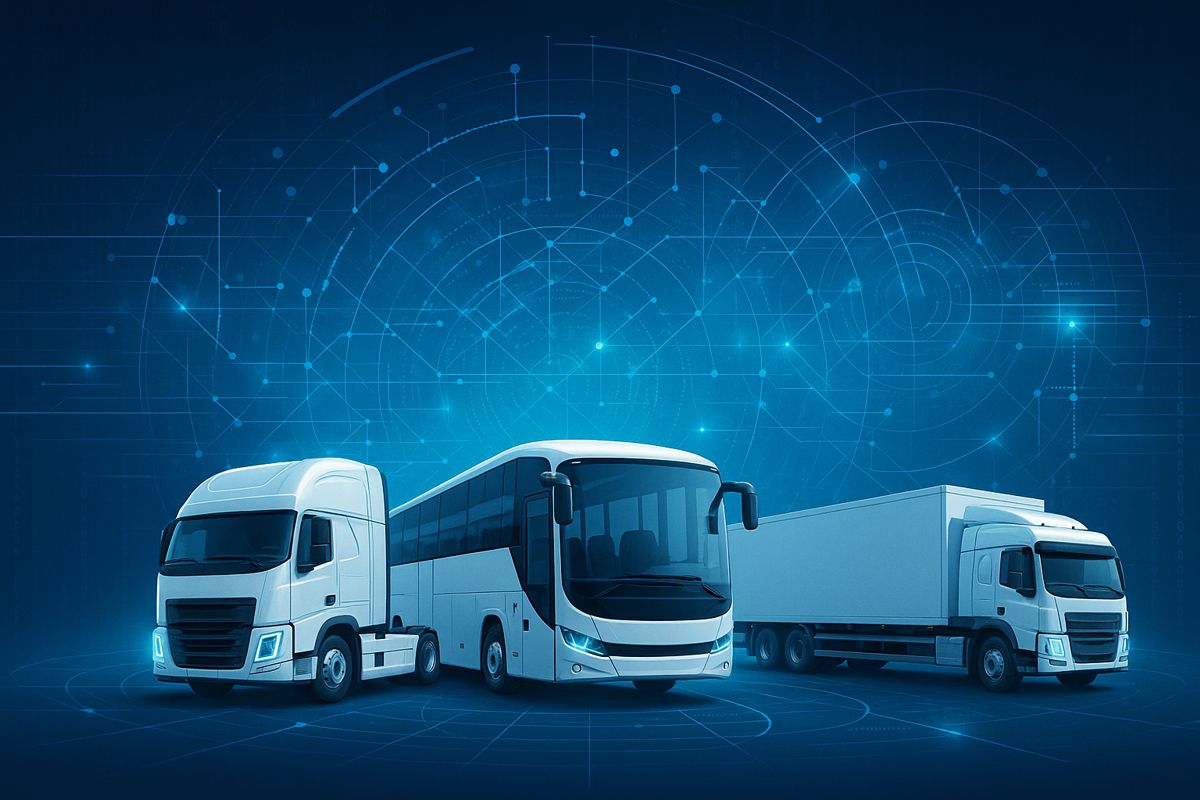Volvo and Daimler Truck launch Coretura to Drive Digital Commercial Vehicles
Volvo Group and Daimler Truck have hit the accelerator on the digitalisation of the commercial vehicle industry with the official launch of Coretura AB, a ground-breaking joint venture headquartered in Gothenburg, Sweden.
Far from just another tech experiment, Coretura marks a seismic shift in how commercial vehicles are built, maintained, and evolved. This new company is on a mission to lay the digital foundation for tomorrow’s trucks and buses, using a software-defined vehicle (SDV) platform to enable scalable, connected, and highly efficient mobility solutions.
By fusing the engineering pedigree of Volvo Group with Daimler Truck’s deep commercial transport know-how, Coretura is positioned to redefine the very DNA of commercial vehicles. The venture got the green light in June 2025, following regulatory approvals after agreements were inked in late October 2024. And now, the real work begins.
Industry transformation in motion
At its core, Coretura aims to build what it calls the “non-differentiating core”: a shared, open, and modular software platform tailored specifically for commercial vehicles. This is no small feat. The commercial vehicle market has long been plagued by fragmented digital systems, isolated legacy software, and outdated ECU (Electronic Control Unit) configurations. Coretura’s solution? Centralised high-performance control units that untangle this mess and act as a unified brain for future trucks and buses.
Through these systems, Coretura enables OEMs to separate hardware and software development timelines. That means faster updates, smarter upgrades, and seamless over-the-air (OTA) integration that mirrors what consumers already expect from their personal tech. In turn, fleet operators and logistics providers will enjoy enhanced uptime, superior diagnostics, and a far more agile service offering.
“With Coretura, we are setting a clear strategic focus on software development for commercial vehicles. This is a big and really exciting step — not just for us, but for the entire industry and our customers,” said Karin Rådström, President and CEO of Daimler Truck. “Together we are starting the digital-driven future of trucks and buses, ultimately making commercial vehicles smarter, more connected, and more efficient than ever before.”
Standardisation meets innovation
The vision for Coretura isn’t to reinvent the wheel. It’s to ensure that the wheel rolls smoother, smarter, and sustainably into the future. The company is developing a commercial vehicle operating system that can act as a baseline for manufacturers across the industry. By standardising the foundation, Coretura frees up brands to innovate where it truly matters: at the application and service level.
This structure also means the platform can host standalone digital vehicle applications, tailored by OEMs for their own brand experiences. From predictive maintenance to energy management and autonomous driving capabilities, the possibilities are wide open.
Martin Lundstedt, President and CEO of the Volvo Group, highlighted the forward-looking spirit of the initiative: “Coretura represents a bold step forward in the evolution of commercial vehicles. By leveraging cutting-edge technology and collaborative innovation, we’re setting the stage for a new era of connectivity and efficiency in the industry.”
A leadership team with roots and vision
Coretura’s top-tier leadership mirrors the balance between startup energy and corporate stability. At the helm is Johan Lundén, a seasoned executive from Volvo Group, known for his work in strategic product planning and innovation. Joining him are three other senior figures drawn from both founding companies. With about 50 employees to start, the company plans to scale steadily in line with its milestones.
Johan Lundén shared his enthusiasm: “This joint venture blends the agility of a start-up with the stability and expertise of our major shareholders. We are proud and energized to lead the digital transformation in the commercial vehicle industry—backed by strong shareholder support and committed to shaping the industry’s future.”
Why software-defined vehicles are the future
The move towards SDVs isn’t just a trend—it’s a necessity. Today’s commercial vehicles face rising complexity, increasingly strict regulations, and mounting pressure to reduce carbon emissions. A centralised, software-first approach allows manufacturers to quickly adapt to new compliance standards, integrate next-gen safety features, and extend the lifecycle of their vehicles through continuous updates.
Coretura’s platform will allow OEMs to remotely update vehicle systems, much like smartphones receive software patches. The benefits go beyond convenience:
- Faster rollouts of new features
- Real-time data for predictive maintenance
- Enhanced cybersecurity management
- Customised driver interfaces
- Plug-and-play integration with external systems
The ripple effect? More reliable fleets, lower maintenance costs, and an improved experience for everyone behind the wheel.
Building the future with partners
Importantly, Coretura is not designed to be a closed ecosystem. The joint venture is actively inviting suppliers—both new and established—to join its mission. Those that share its vision for open, interoperable, and future-ready systems will find a collaborative development partner in Coretura.
This open-door strategy not only widens the innovation pool but also helps future-proof the platform against the fast-changing tech landscape. Whether it’s AI integration, V2X (Vehicle-to-Everything) communications, or cloud-native diagnostics, Coretura’s system is built to flex and scale.
Competition remains alive and well
Though Volvo Group and Daimler Truck are joining forces here, they remain competitors when it comes to their own vehicles and service portfolios. Coretura acts as a neutral enabler, giving both players the same tools but allowing each to shape them according to their market strategies.
This approach ensures that innovation isn’t stifled by standardisation. Instead, it lays a solid foundation on which OEMs can layer differentiation and brand value—an essential factor in the fiercely competitive transport sector.
The road ahead
Coretura’s first products are expected to make their debut before the end of the decade. With digital transformation already revolutionising adjacent sectors like automotive, logistics, and mobility tech, the commercial vehicle industry is ripe for disruption.
Coretura’s roadmap aligns well with global sustainability goals too. By enabling intelligent route planning, fuel-saving algorithms, and battery performance optimisation, the software-defined model will play a significant role in reducing emissions across transport networks.
As regulatory demands, customer expectations, and competitive dynamics continue to evolve, Coretura’s launch couldn’t be timelier. It embodies a new mindset: one that puts software at the heart of the vehicle and collaboration at the core of innovation.
A Connected, Smarter Tomorrow
Coretura’s arrival signals a new chapter for commercial vehicles. It’s not just about building better trucks; it’s about building a smarter ecosystem around them. Through collaboration, openness, and relentless innovation, Volvo Group and Daimler Truck are setting the stage for a digital future that’s efficient, sustainable, and ready for the long haul.
With Coretura, the commercial vehicle sector is steering away from the past and into a future where updates are wireless, data drives decisions, and software runs the show.





























